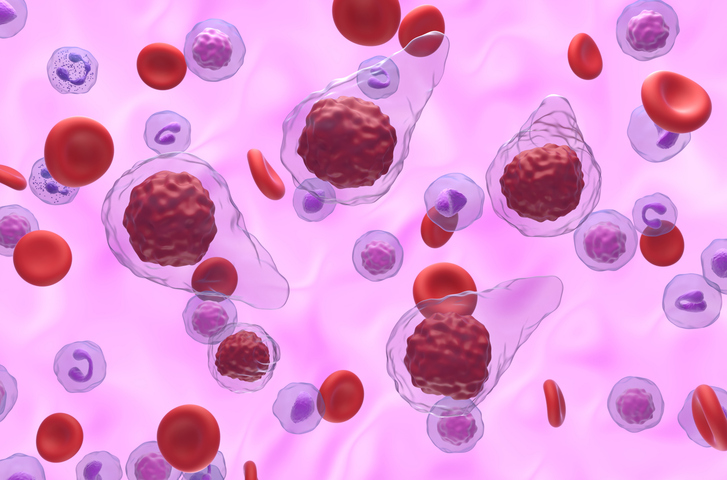
Results from a new study “provide a rationale for therapeutic targeting of the CXCL8/CXCR2 pathway” in patients with myelofibrosis, according to its authors.
Andrew Dunbar, MD, of Memorial Sloan Kettering Cancer Center, and colleagues conducted the research and published its results in Blood.
Dr. Dunbar and colleagues conducted the research because it is known that “dysregulated inflammatory signaling contributes to fibrotic progression” in patients with myelofibrosis, but the “individual cytokine mediators elicited by malignant MPN cells to promote collagen-producing fibrosis and disease evolution remain yet to be fully elucidated.”
The researchers previously identified a “critical role” for combined constitutive Janus kinase (JAK)/signal transducer and activator of transcription (STAT) and “aberrant NF-kB proinflammatory signaling” in myelofibrosis development.
They aimed to build upon the previous work to delineate the role of CXCL8/CXCR2 signaling in myelofibrosis pathogenesis and bone marrow fibrosis progression. They used single-cell transcriptional and cytokine-secretion studies of cells from patients with primary myelofibrosis and the hMPLW515L murine model of myelofibrosis.
Dr. Dunbar and colleagues found hematopoietic stem/progenitor cells from patients with myelofibrosis “aberrantly secrete” CXCL8 and are “enriched” for a CXCL8/CXCR2 gene signature. Hematopoietic stem/progenitor cells from patients with myelofibrosis also display “enhanced proliferation and fitness” in response to exogenous CXCL8 ligand in vitro, according to the researchers.
Furthermore, genetic deletion of Cxcr2 in the hMPLW515L adoptive transfer model “abrogates fibrosis and extends overall survival” as well as “improves hematologic parameters,” Dr. Dunbar and colleagues wrote.
Pharmacologic inhibition of the CXCR1/2 pathway “improves hematologic parameters, attenuates bone marrow fibrosis, and synergizes with JAK inhibitor therapy,” Dr. Dunbar and colleagues wrote, concluding that these “mechanistic insights provide a rationale for therapeutic targeting of the CXCL8/CXCR2 pathway” in myelofibrosis.
Reference
Dunbar A, Kim D, Lu M, et al. CXCL8/CXCR2 signaling mediates bone marrow fibrosis and represents a therapeutic target in myelofibrosis. Blood. 2023. doi:10.1182/blood.2022015418






 © 2025 Mashup Media, LLC, a Formedics Property. All Rights Reserved.
© 2025 Mashup Media, LLC, a Formedics Property. All Rights Reserved.